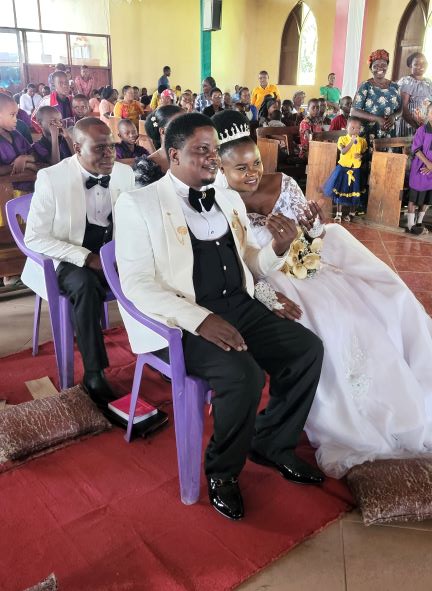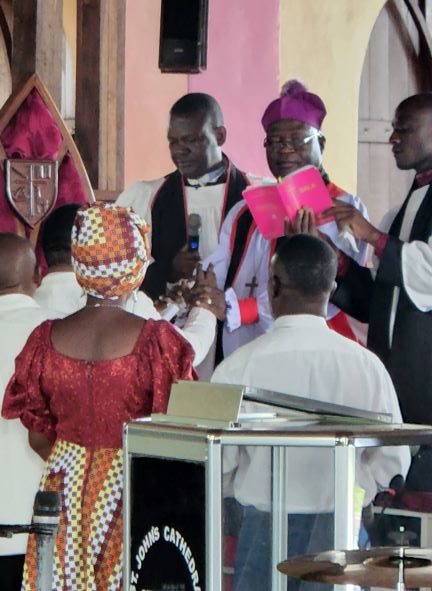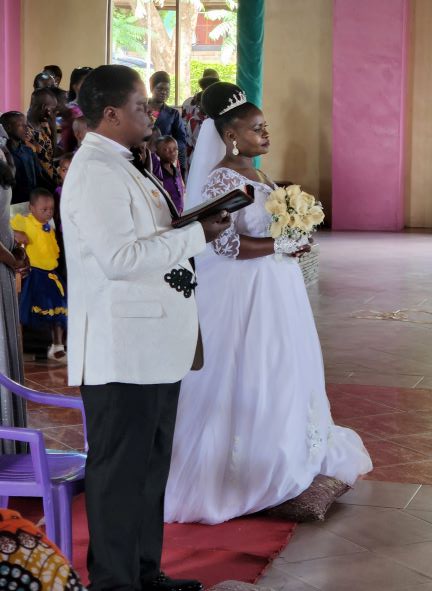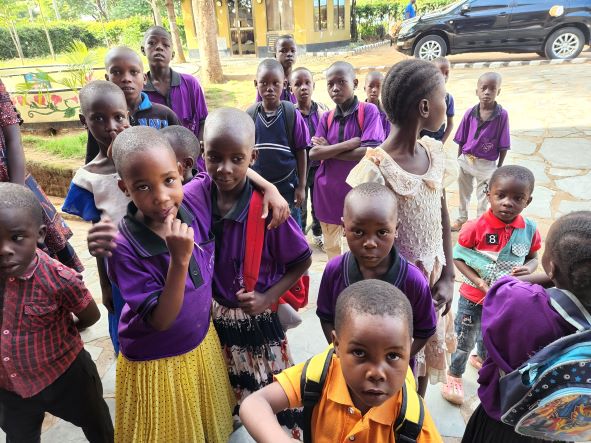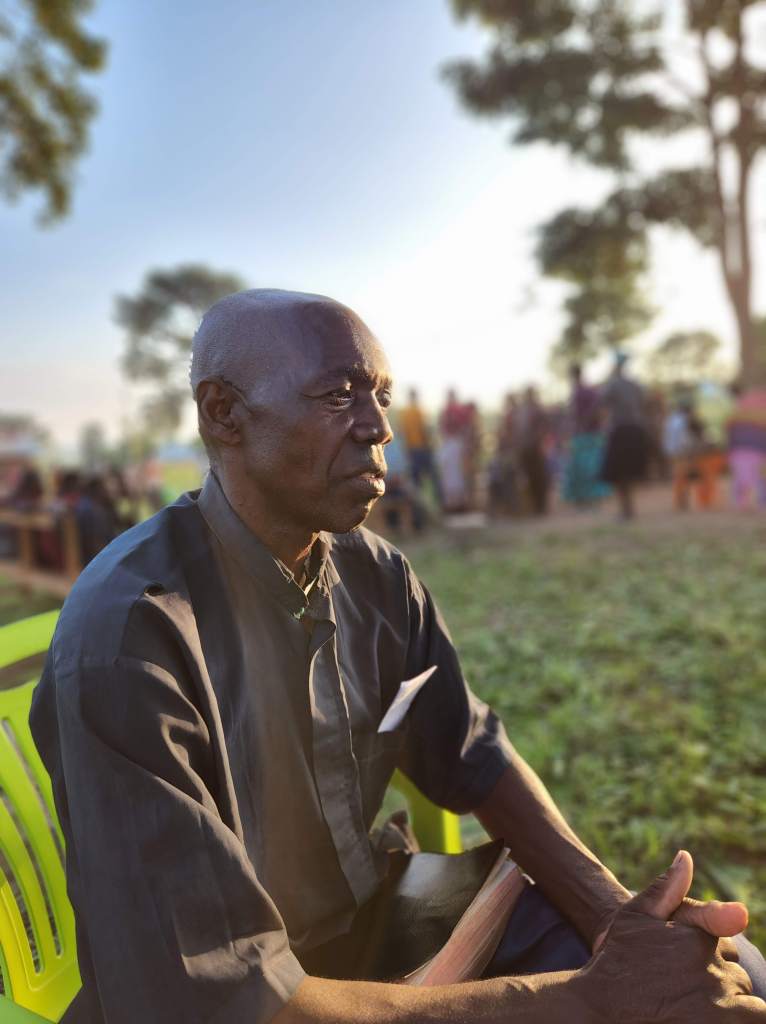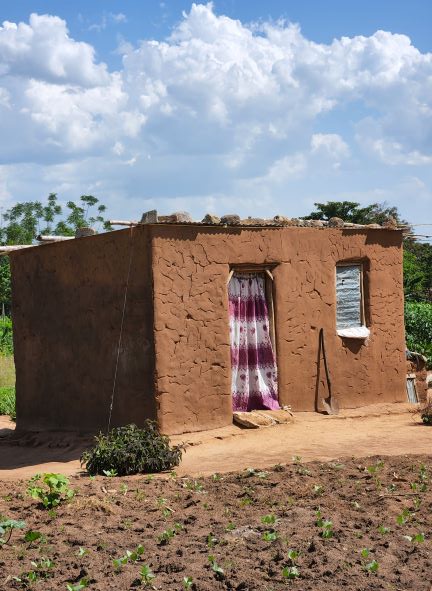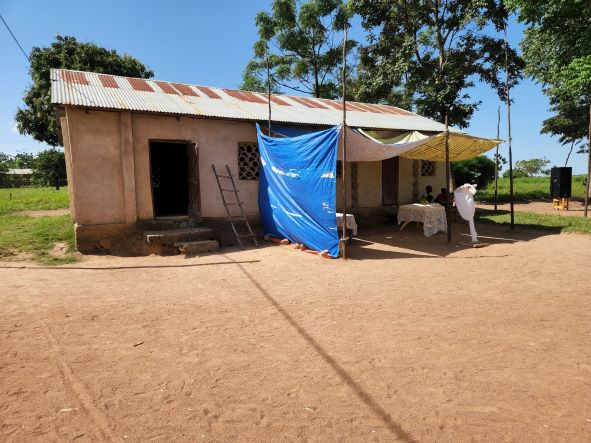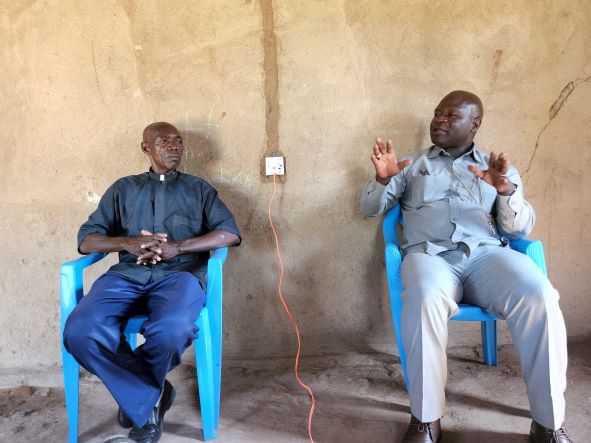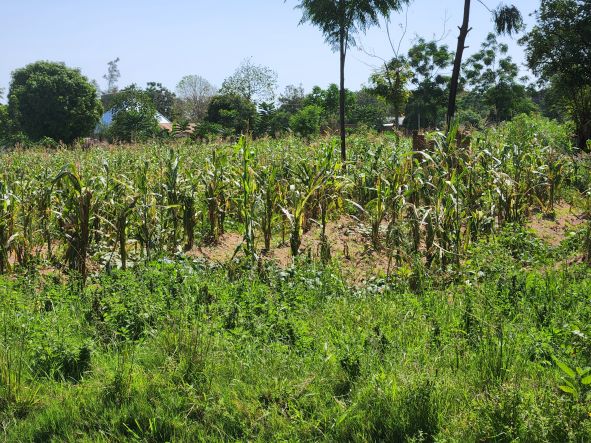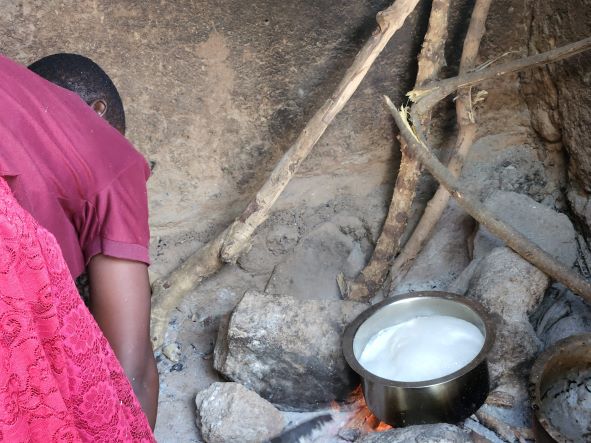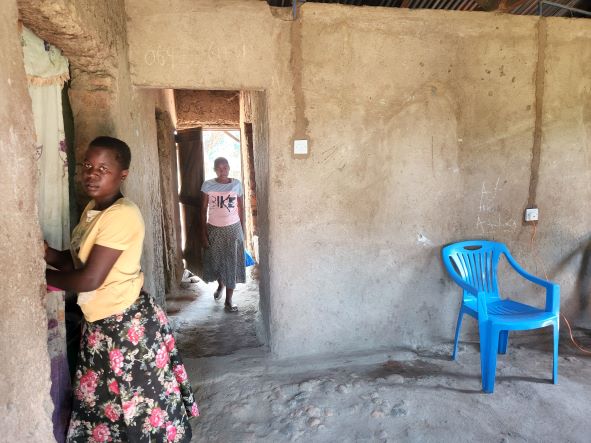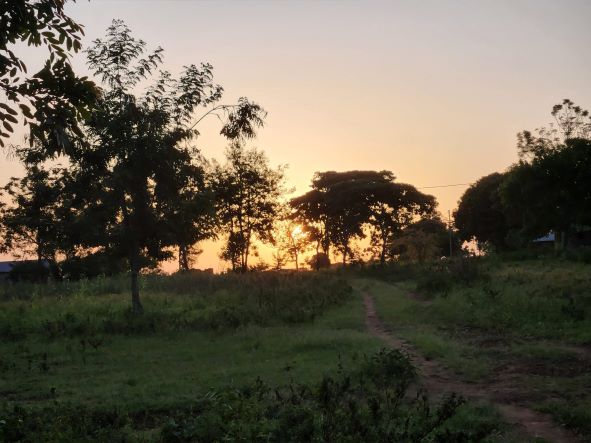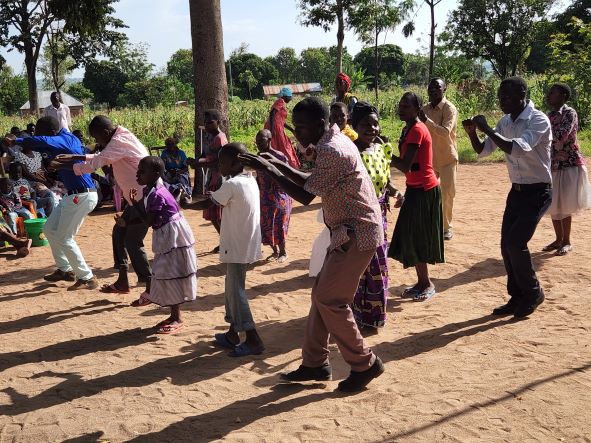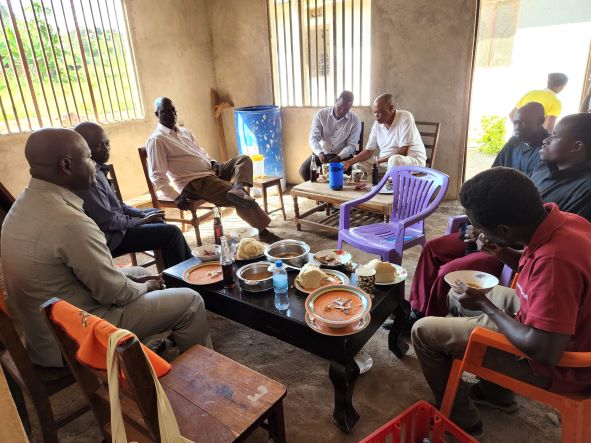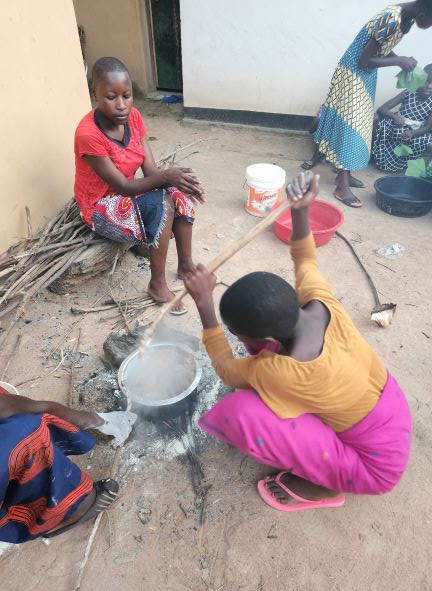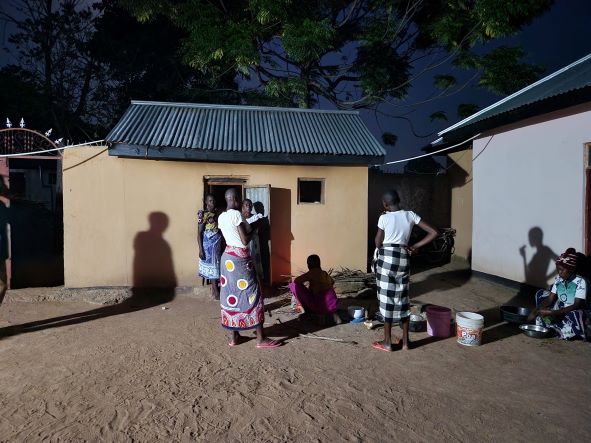A week of work ends with a wedding Tanzanian style
This week has been a focus on a few treats for me. I found a barber shop where pedicures were advertised and it was not bad. My feet which have walked through dusty roads since my arrival and dried out soles needed a good scrub and scrape. So for $12 it was great value. Mind you the original quote was $10 but after having my feet in hot water for a few minutes suddenly the Engish of the lady scraping my heel managed to tell me 20,000TZS, not the 15,000 I had quoted. I would have tipped her the additional 5,000 so no great loss.
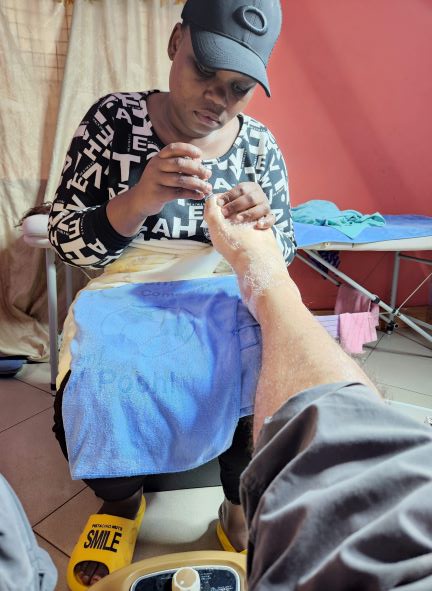

Next day a haircut. Back to the same hairdresser for my $2 cut (tip last time was $2) and I am sitting there the young girl who sweeps the floor, does the hairwashes and other sundry tasks, opens a cupboard and takes out hair dye. Now everyone over here has black hair. The guy out the back who has his hair being dyed has black hair. How ridiculous I thought, only to be told a lot of guys like it darker. So after ascertaining it was only a three minute job ( I forgot to ask how long I had to stay in the chair) and a price of $7.50 I thought why not.
Well putting the dye in was three minutes but waiting for it to dry and then washing my hair was about another hour. Now to my eyes it was very dark. However I have been told by many here they like it. In fact Bishop mentioned to me if I was marraiageable, I would not be turned down! I am not sure it has made me look that much younger.
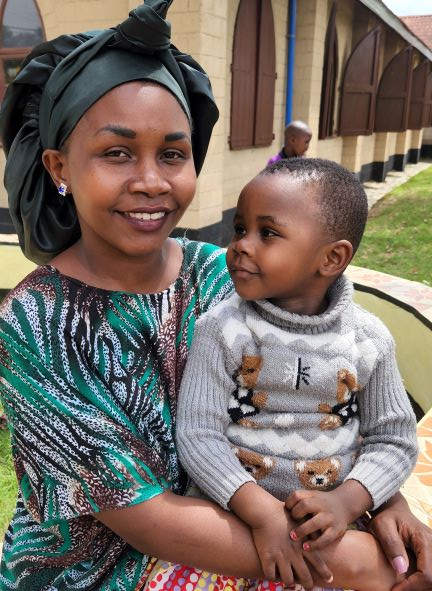
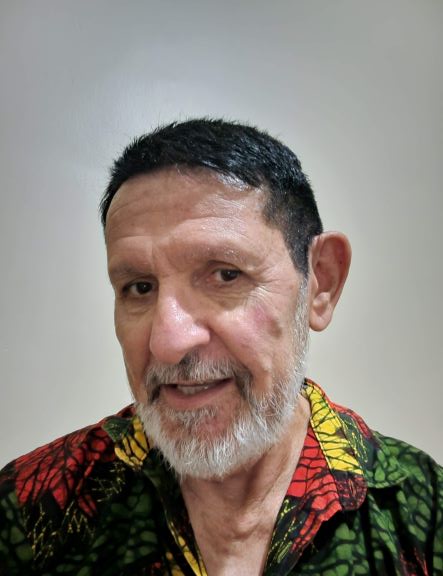
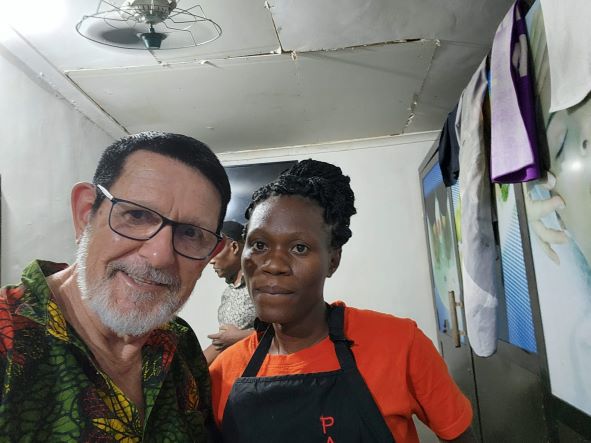
Work this week was again busy and frustrating. Seeing people working on computer systems where there is no internet, no way of readily sharing documents and even getting a letter written and scanned for the bishop since Wednesday wasn’t finished by Friday. Staff here work very hard.
I was asked by a staff member when “do you rest.” Not satisfied with after work and weekends she persisted and I understood that sometimes people have a break during thier work day even if they don’t leave their desks.
Most mornings we have breakfast before heading to the cathedral for morning prayers and then to the cafeteria where staff enjoy a subsidised breakfast at 8am. I usually go and have a coffee (Vittoria Coffee bags brought with me from Australia) , chat with others and get in by 8.30am. On Thursday I decided to have a chipati and had to wait so went out the back to see how they were preapred. The pictures graphically tell the story.
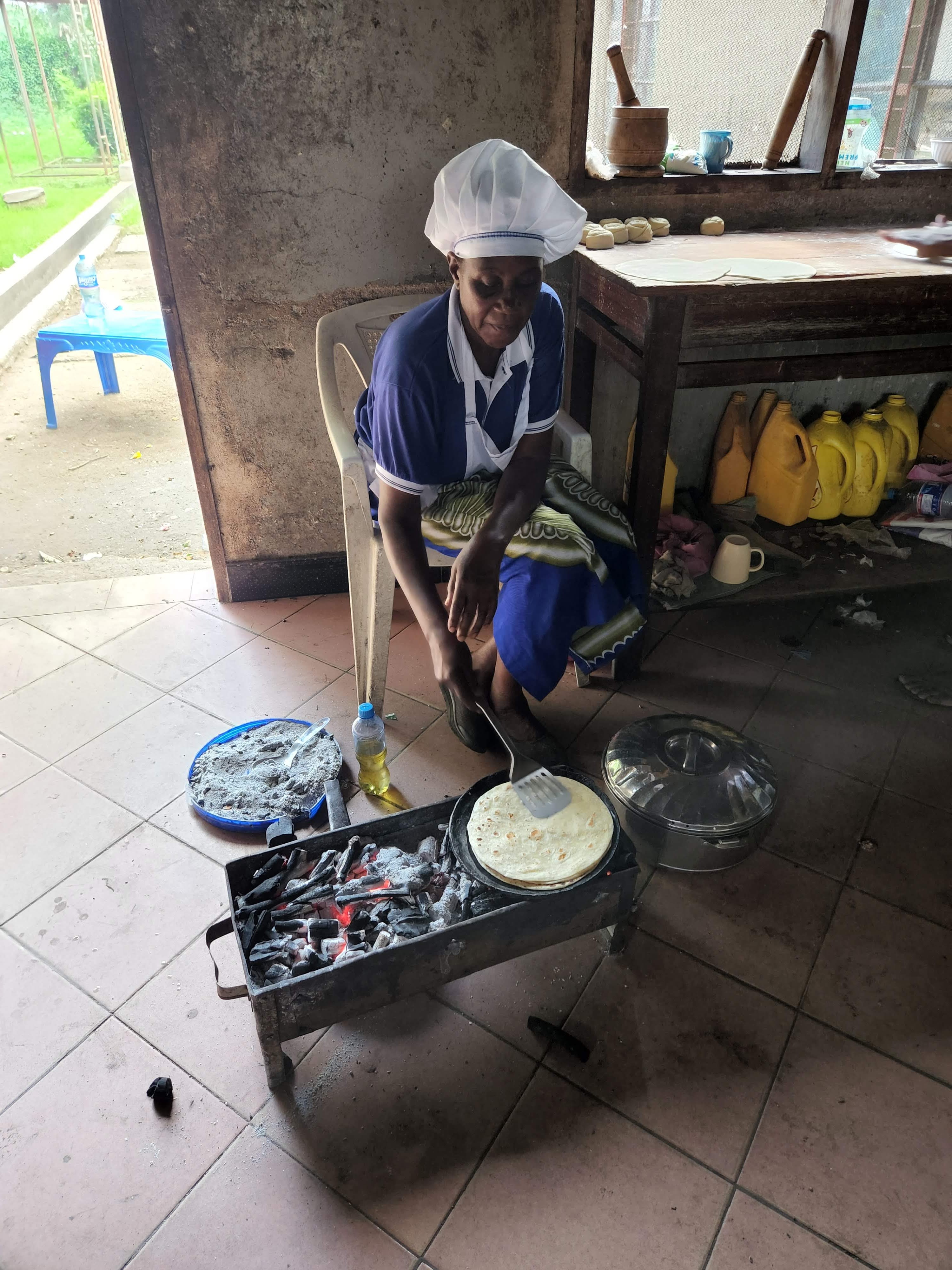
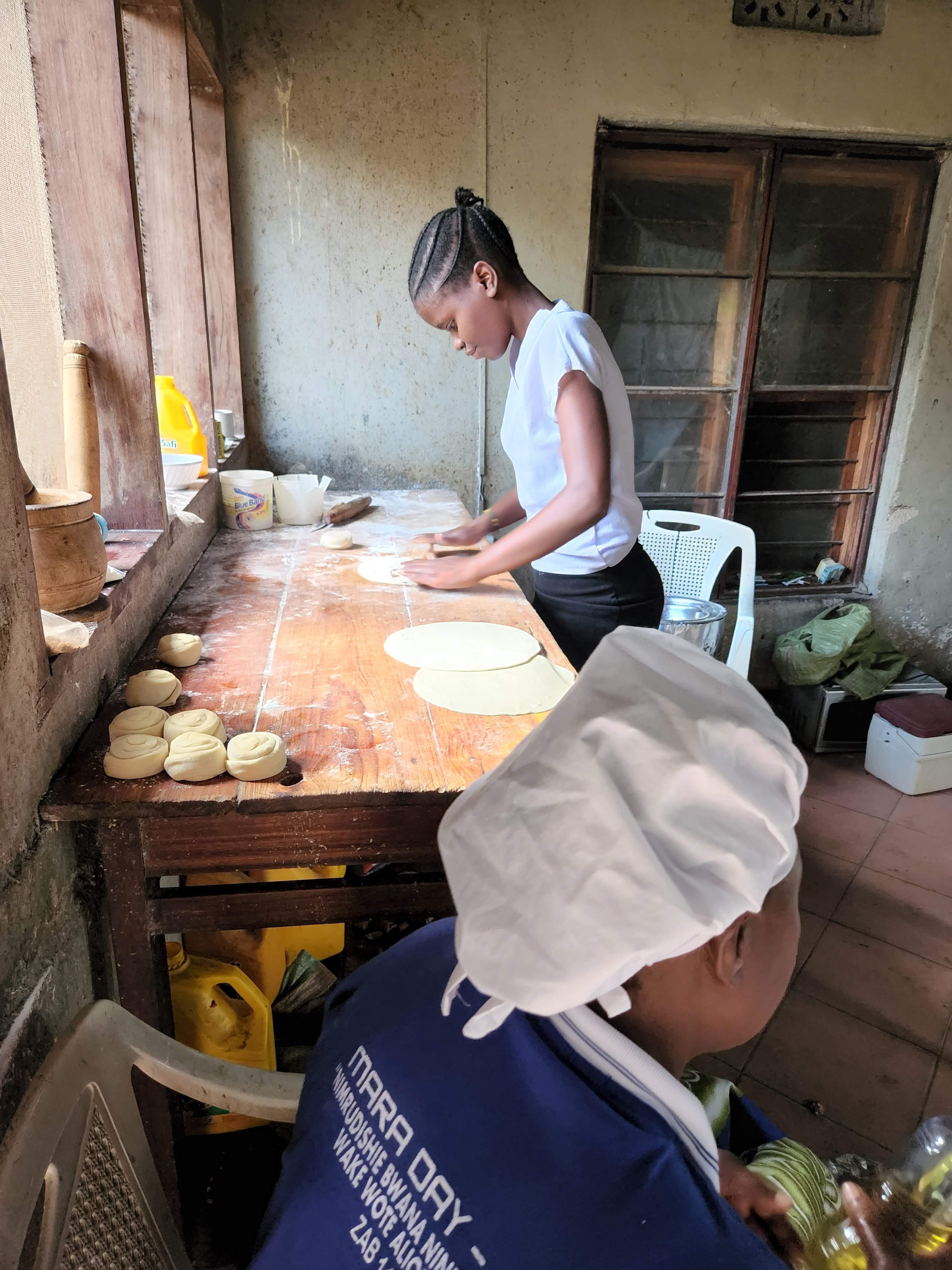
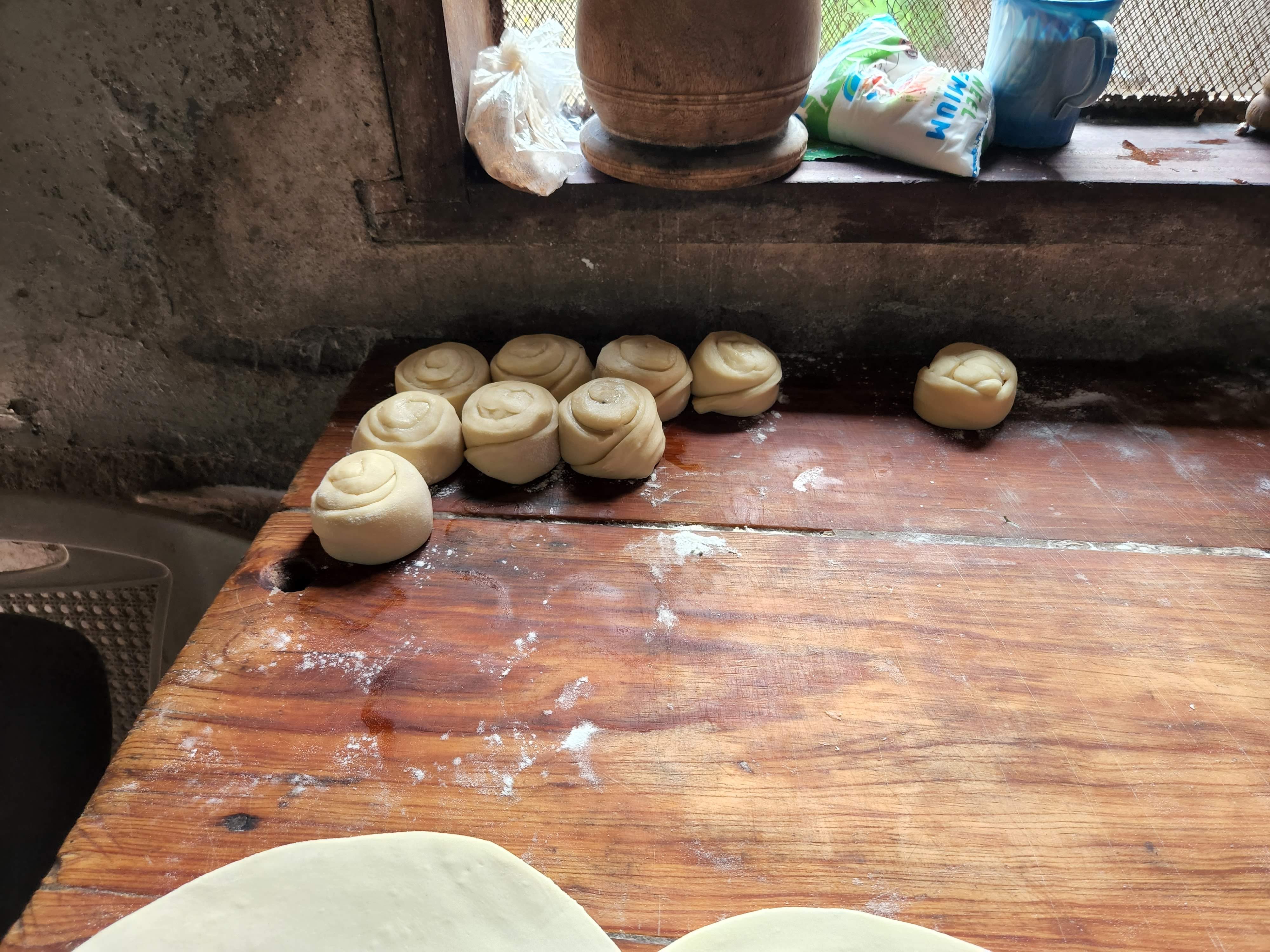
One morning I walked the long way to the office from the cafe and saw girls from the sewing centre playing a ball game before class. Netball would do well over here. Monkeys were spotted on the roof of the cafe that morning.
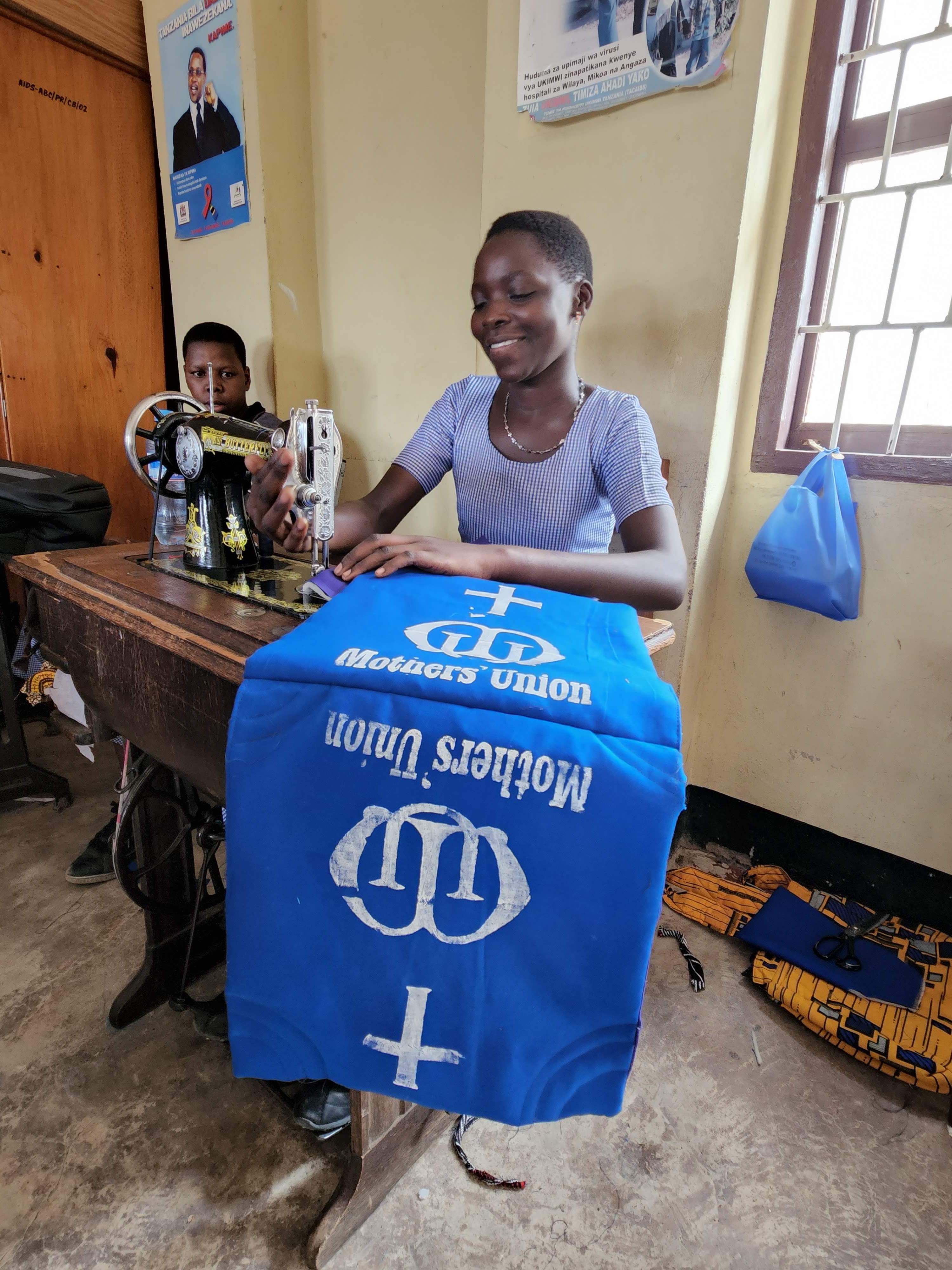
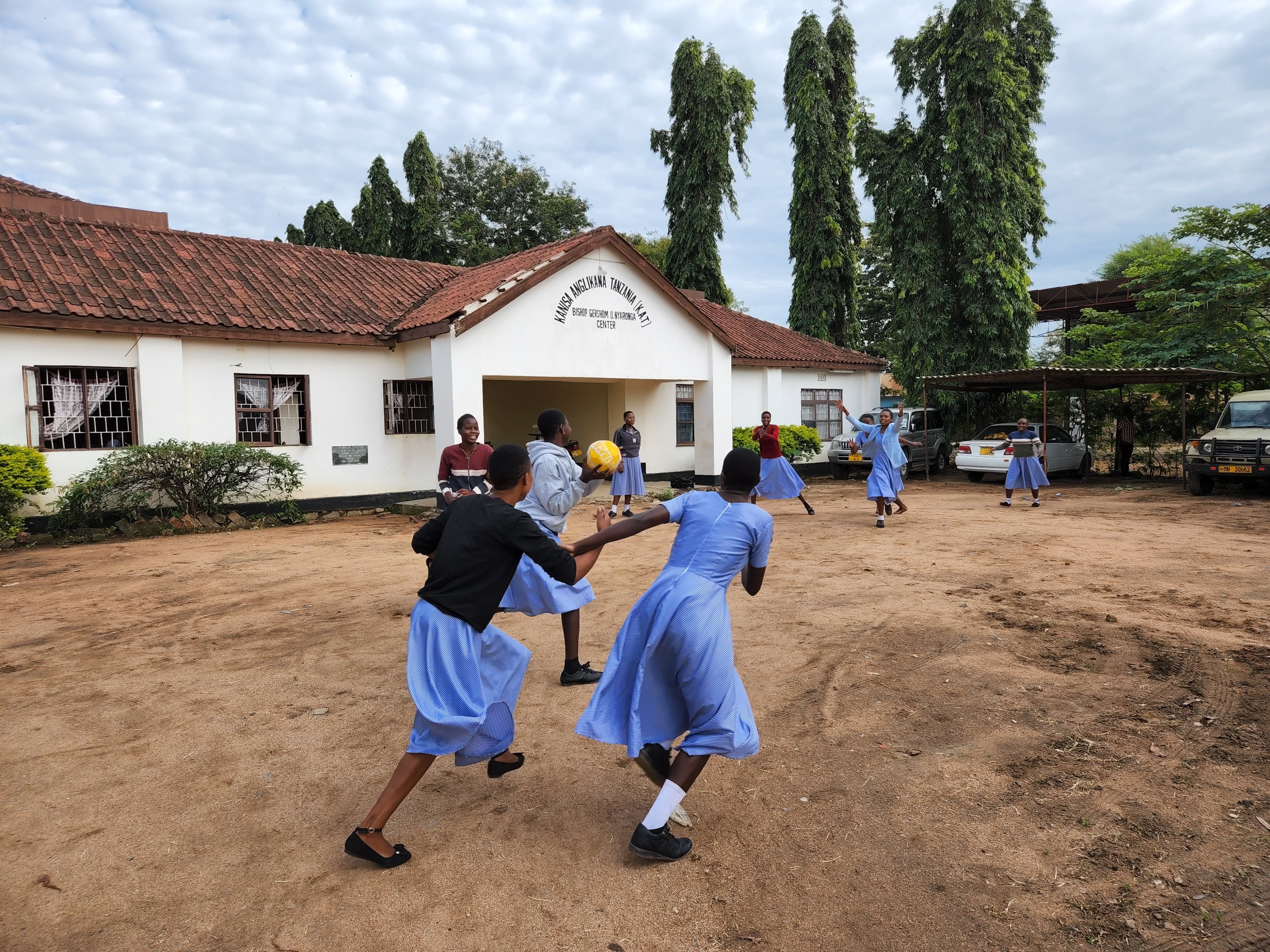

The Bunda Bible College has its graduation on 11 June and given my past role with Anglican Aid and helping support students there the college will graduate the largest number of graduates in living memory of any Anglican Church of Tanzania College with forty graduates at certificate, Diploma and the extension (remote) course. As a result I have been invited as the speaker on the day so one evening was spent preparing that talk. As I edited it Saturday, I translated it into Swahili and had a go at speaking it. Not sure I can speak 1500 Swahili words efficiently but will have a practice run through with some poor soul to tell me if it is worth pursuing.
Friday was the PTC graduation in Sydney. I was able to tune in online. Friday afternoon I faciliate the English Bible study. Only two people thiss week.
A Tanzanian Wedding
Bishop told me one of the pastors asked him if he could marry about six weeks ago just after he got a yes from the bride to be. This is a formal process and because she was not a confirmed Anglican and her family wanted the wedding in her town and church, his feedback was that he had to marry in an Anglican Church as an ordained clergy.
So imagine organising the wedding in six weeks. Well it went off on Saturday and was interesting to observe it all. We arrived at the cathedral at 8.40am for a 9am start. Not a soul around. Ten minutes later the groom and best man emerge through the closed doors of the cathedral. They came to see what was happening which was nothing, other than our arrival. at 9.03am still no one. By 9.15am a small number of people started arriving and then a rush.
Both are employed att the local Anglican School and as the adults started increasing in number, a wave of primary and kinder kids from about three years old streamed in. The cathedral was fairly full by 9.30am as the briadal car arrived. She did not emerge till after 10am, by which time a few choirs had warmed the congregation up, the groom had addressed the people inside and most guests were seated making meaning the cathedral was 75% full (about 300 people).
As her entry was announced a choir led singing and people lined up in the aisle. She stopped just inside the cathedral doorway and the groom and best man made their way down the aisle and stopped 1.5m from her. The dean made an announcement,there was a response from the groom, people howled, ululated and cheered and then the groom lifted the veil of his bride to be. Together they commenced walking down the aisle together to deafening ululations and cheers.
The service used the Anglican Prayer Book for weddings so I could follow what was going on. The Vicar General spoke and received a note from the bishop which I was later told “time is not our friend.” He completed his address shortly afterwards. The couple were married, resumed their seats, communion was taken and then back up the front for the binding of hands with the bishops scarf as he prayed for them (words about whatGod has joined let no one separate).. The register was signed and out we went about two hours after the bride made her entry.

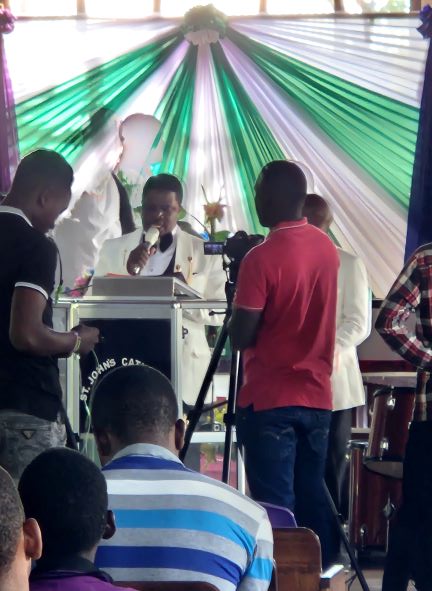
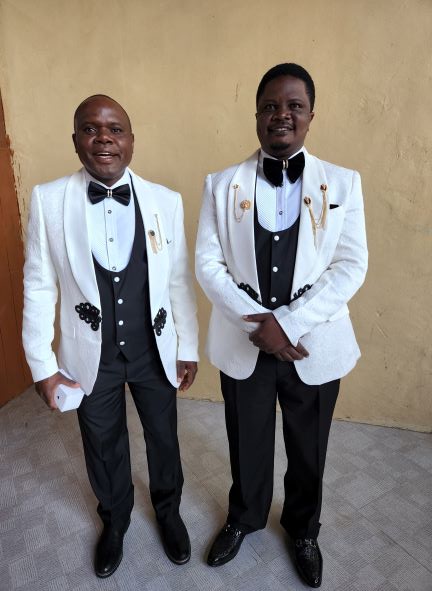
Asking a number of people if this was a long wedding, I was gobsmacked to be told this was very shrt at only two hours. The couple were heading to Mwanza (four hours away) for the first reception with her family and friends. I will be at the Musoma reception Sunday night at 7pm. All in all a wonderful experience.

